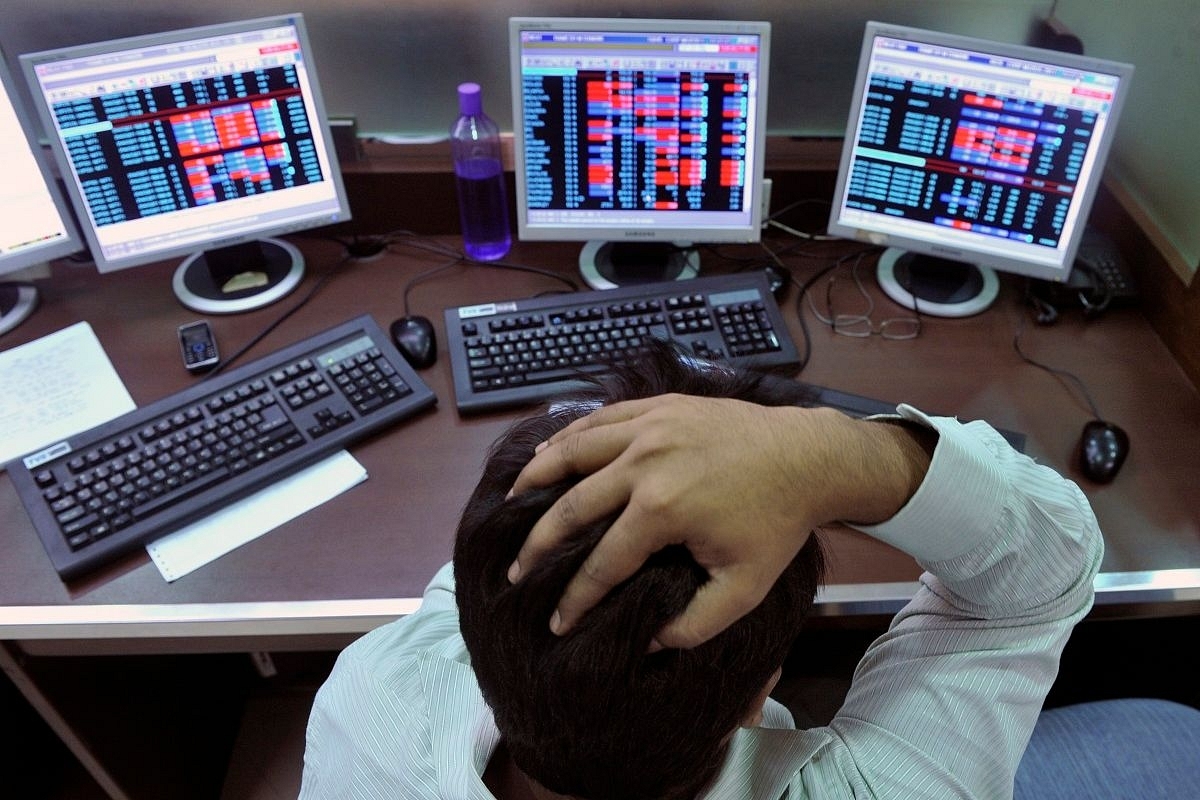Economy
Make The World Trade Again: Amid Global Slowdown, India Needs To Get Its Cards Right
- Recent economic data suggests signs of a global recession.
- A fall in investments could result in weaker hiring over the next couple of months, leading to an increase in unemployment and economic contraction.

Tough times in store as global investments slump (AFP PHOTO/Indranil MUKHERJEE GettyImages)
A lot has been discussed regarding India’s slowdown in consumption, but there has been limited discussion on the recent global slowdown. It is important to look at what’s happening across the world as it has a lot of implications for our growth.
Recent economic data has revealed early signs of a global recession, and the recent wave of rate-cuts by central banks across the world (including India) suggests that there is a formal recognition that growth is likely to falter.
For instance, Germany’s quarterly Gross Domestic Product (GDP) contracted by 0.1 per cent (April to June) and this slowdown is largely due to the uncertainty, thanks to the current trade war.
Another important factor is with respect to what’s happening in Europe and an abrupt no-deal Brexit is likely to adversely impact the region and its economic growth.
The European Central Bank is already preparing for a stimulus package in September with a combination of bond purchases and simultaneous reduction in interest rates to revive growth amidst global slowdown.
Back in Asia, we saw the joblessness rate in Chinese cities at their highest levels, while consumption and property investment figures were lower than anticipated.
The same is true even for factory production. No surprises that China decided to devalue its currency earlier this month in an attempt to partially mitigate the impact of high tariffs on its goods and services.
The fact is that China, too, seems to have slowed and is looking for policy measures to revive its growth rate.
A common feature between China and Germany is that they both are exports-based economies and as a matter of fact, across the globe, export-driven economies seem to have slowed over the last couple of months.
Due to the current uncertainty regarding future trade flows, fresh investment in these economies have stopped and even consumption seems to be slowing.
In the case of the US, we’ve seen robust consumption, and this is reflected in the latest consumer spending data available from the Commerce Department.
Retail sales increased by 0.7 per cent in July (seasonally adjusted, month-on-month) and this is in contrast with the industrial production data which declined by 0.2 per cent in July (seasonally adjusted, month-on-month).
Similarly, capacity utilisation for the US also dropped to 77.5 per cent in July indicating a slowdown in production despite robust consumption.
This consumption has largely strengthened the American economy at a time when the entire world is slowing due to the ongoing trade war.
However, the Commerce Department also revealed that corporate profits before taxes were down 2.2 per cent in the fist quarter (year-on-year). It further highlighted that private investment too had fallen in the second quarter.
Therefore, a fall in investments could result in weaker hiring over the next couple of months and it could ultimately lead to an increase in unemployment rate and a contraction in the economy.
The current trade war has impacted export-driven economies due to greater uncertainty regarding future trade flows. This has consequently led to lower levels of fresh investments in these economies and their economies have started to show early signs of a recession.
While on the other hand, it has increased cost of products for the American businesses (though bulk of the higher cost of previous tariffs were distributed across the supply chain, and some of the recent tariffs have been mitigated by the devaluation of Chinese currency).
Consequently, businesses are witnessing lower profits despite robust consumption, and this has started to have an impact on private investment in the US.
Global growth has an impact on India and its growth, despite its relatively low level of trade share. More importantly, it will have a significant impact on capital flows, be it in the form of Foreign Direct Investments (FDI) or Foreign Portfolio Investments (FPI).
We’ve all the signs we need that global growth is slowing – and that a global recession is very likely just around the corner.
Now is the right time to smell the coffee and swing into action to mitigate some of the effects of this recession and take urgent steps towards reviving our domestic demand in order to kickstart the virtuous investment cycle.
Support Swarajya's 50 Ground Reports Project & Sponsor A Story
Every general election Swarajya does a 50 ground reports project.
Aimed only at serious readers and those who appreciate the nuances of political undercurrents, the project provides a sense of India's electoral landscape. As you know, these reports are produced after considerable investment of travel, time and effort on the ground.
This time too we've kicked off the project in style and have covered over 30 constituencies already. If you're someone who appreciates such work and have enjoyed our coverage please consider sponsoring a ground report for just Rs 2999 to Rs 19,999 - it goes a long way in helping us produce more quality reportage.
You can also back this project by becoming a subscriber for as little as Rs 999 - so do click on this links and choose a plan that suits you and back us.
Click below to contribute.
Latest